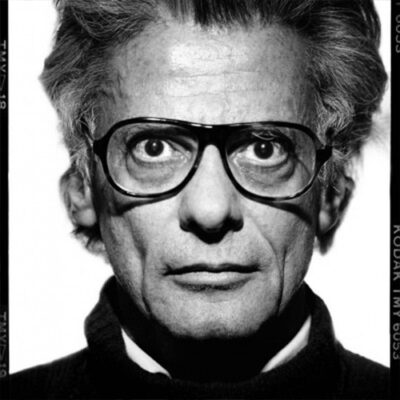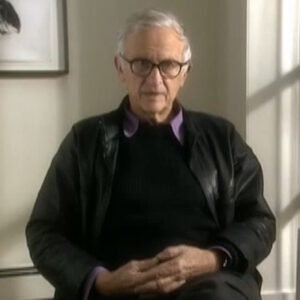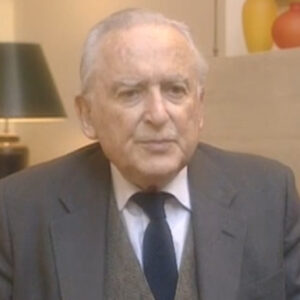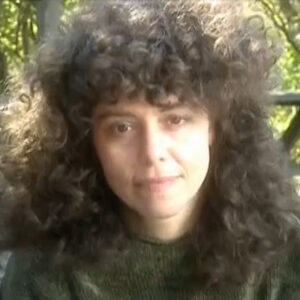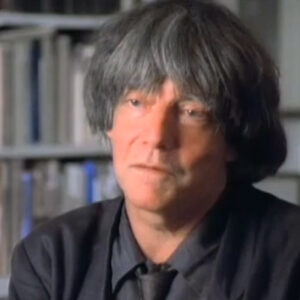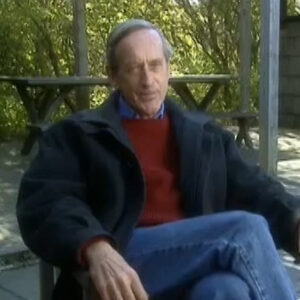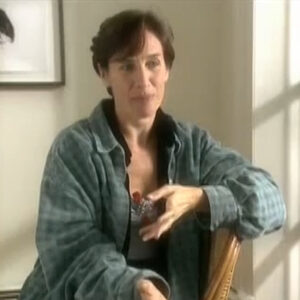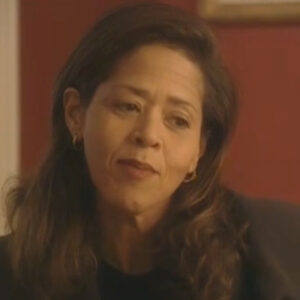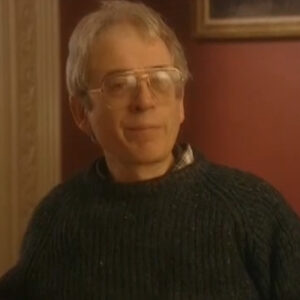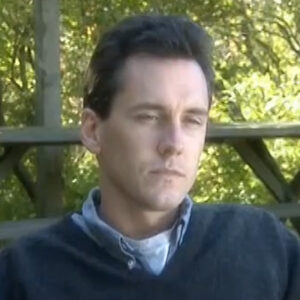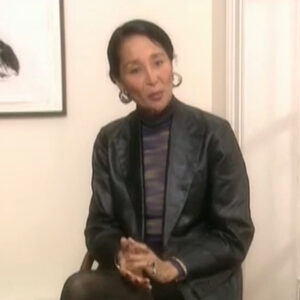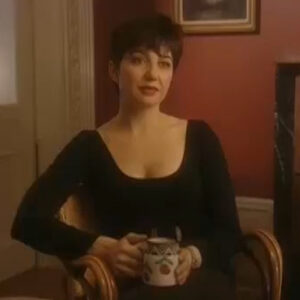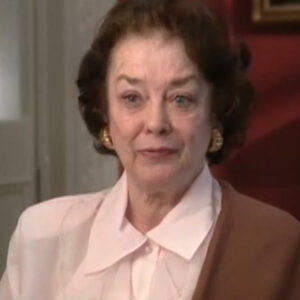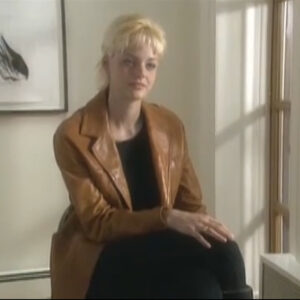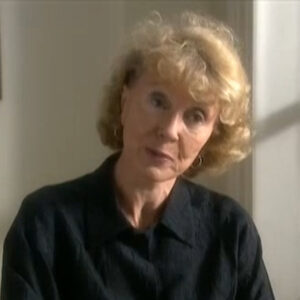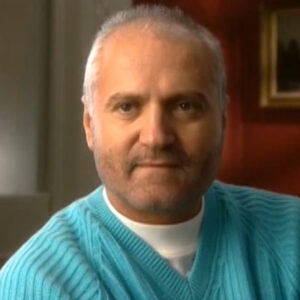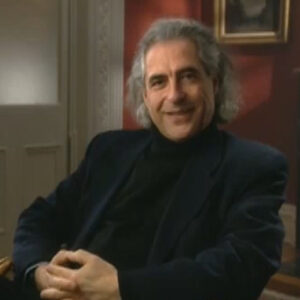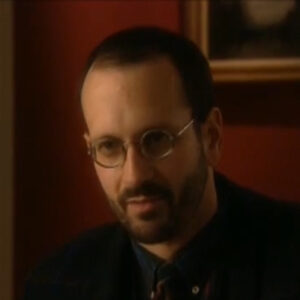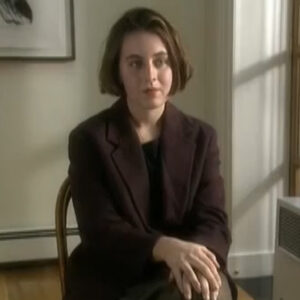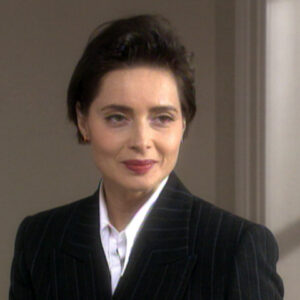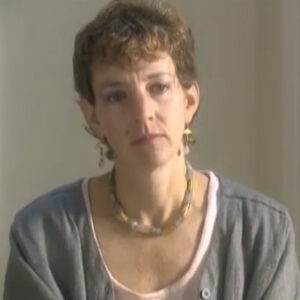Speaker Where Dick found you, what you were doing and the whole story of how he asked you to be part of this picture.
Speaker I was skinning rattlesnakes at the roundup and basically he just came up and asked me if I could take my picture. And I didn’t think anything about it because so many photographers come up and ask you and ask if you take a picture. I agree. I said, sure, no problem. And we went out there and he took the picture. And the I guess the famous last words always remember, he told me, said, I will make your picture famous and not knowing who he was. I said, Yeah. Right. Okay, sure. And it’s just gone on from there. It has. You know, he’s shown a picture all over the place.
Speaker Do we start again? And tell me that you’re from Sweetwater and they have this roundup. What is it? And what what were you doing in the pit with the rattlesnakes when he found you kind of get a picture for us. You’re from Sweetwater, a small town in Texas. At the Rattlesnake Roundup, which nobody has any idea about that. OK.
Speaker OK. He came in. Skinner.
Speaker I’m sorry. Use Dick’s name. The capital. OK. OK.
Speaker Richard, everyone came in to the rattlesnake roundup in Sweetwater in Texas, and they have it’s an annual event every year in March. And basically what it is, it’s, uh, they started years ago to catch for the rattlesnakes and get rid of them, to keep from them killing off the livestock. And it was their roof came in. It found me. I was just skinning rattlesnakes in the pit, which I did for about seven years for the fun of it, because it was something to do for a week. And he basically came up and asked me if he could take my picture and not knowing who was I, you know. Sure. And that his picture was probably the one that the biggest picture that I think boys have taken of me. But there were some other small photographers, TV with their magazines were there. And he told me, uh, I’ll make your picture famous. And I didn’t understand what he meant. But now I do now.
Speaker A lot of your friends, he said, think that what you know, getting in the pierde and cleaning up the snake is a dirty and difficult word. Describe to us what you were doing with that snake. Everybody else was doing what he. When he found you.
Speaker Basically, what they do at the roundup is they bring in a lot of rattlesnakes. They milk the venom, madam, for any talks. And then they take more to get it. And there’s two men over there who chop their heads off. And then you just grab a snake and you hang it by a string and basically just make it split down the middle of the stomach and pull all the guts out. And then you take the skin off the meat and then you put the skins in one stack and the meat stuck in the fry, the meat it. And I sell to the folks who you enjoy doing it. I really did. It was fun. There was a lot of people that asked me, you know, wanted to do it. That is really sick. But it was to me, it was fun because it was something to do. And it is something different, something out of the ordinary that not everybody would like to do. Despite the setting itself, all the tale on the sit in was, uh, it was different because, uh, he came up and asked me, sorry, more if you could take the picture. And I said, sure. And I always figured it’s going to be a lot. Most we take two pictures and that’s it. Well, we were there SRT morning from probably eight o’clock in the morning until noontime. And then we went back in Saturday afternoon and it was till five, four thirty or five o’clock Saturday afternoon. And I thought that was it. And he came back again Sunday morning. So we didn’t get the right picture. We need to do it all over again. And at that point, it was about 40 degrees outside. And it was, uh, the wind was blowing pretty good, but not as bad as it is today. But it was just cold. And I thought, oh, God, I hope we get this over with in a hurry because it was cold. And my hands were just getting no. And, uh, finally, I still can’t think of God.
Speaker And that was I it was a joyous occasion. I was tired of holding signs, but.
Speaker It was different. It was long. I like I really found it. What professional models go through that we can?
Speaker And it makes you kind of appreciate what they go through, because that was it was a long we’ll deal with it again in more detail, beginning with the thing.
Speaker What do you do? Hold on and create a whole sense of long lasting, detailed work out there.
Speaker The settings will long. We went through so many different. Some pictures, a smile. Some pictures. I did want the pictures. He wanted to get an expression of face, I guess, as my eyes and the sun was shining. And when I did, he told me to close my eyes when my eyes. The first thing it was a sun hit my eyes and my eyes teared up. And I was kind of worried about that. And he said, Oh, don’t worry about it. You know, did you. And he was very easy to work for. But at the same time, it was very long. There was I did so many pages. I held two snakes, hailed the one snake there. I mean, a lot of different poses just to get the one picture that I guess he finally did decide that he liked the best. It was it was a long ordeal to get around to that point.
Speaker Despite the final thing as it was getting closer to what he wanted. You describe that.
Speaker Basically, I really I didn’t know what he was looking for, but evidently he did because evidently he hadn’t seen it in the first two sentences or one of them back after Sandy. And then when he finally Sunday evening, he said, well, I think we’ve got ours. This is great. Finally, he finally got what he’s want because I had no idea what he was looking at, because we had done so many different poses, facial expressions. I think you both the moon and a wide range of everything to see what he could.
Speaker What he really wanted to work with.
Speaker When you first saw the picture, the first time I saw the picture, I received a package from. And it was a clipping of a newspaper from Berkeley, California. And enclosed it was a little letter he wrote. He said, I just wanted to let you know and keep in touch with you, that I am sure when you picture, people are seeing it. And he enclosed a copy of a little magazine clipping out of places that it was in. And it was a little different than what I expected because I hadn’t seen it before. I knew that, yeah, I was going to be held a good girl snake with a wide open on with blood all over it and the guts hanging up. But I didn’t know exactly what it was. And I was kind of, oh, this is pretty neat. And I show it to my parents and they were like, okay, you know, hey, that’s that’s all. You know, it’s kind of neat. And I’ll end it. He just said the. He let me know that he was showing the picture and people were seeing it and it was getting wide reviews, both people approving and disapproving of it.
Speaker They were just amazed at that wide response among your own friends, the people that didn’t like it. What a button. What did they say to you? What did they feel about it?
Speaker Basically, the aliens, the ones that didn’t like it, were they were just, you know, how can you do that? That’s a sickening picture with all that blood stuff over and all over the.
Speaker The snake and all over the the code itself. But, uh, I just basically didn’t pay attention to what they thought about it because I was like, well, you know, it’s just fetcher, you know, if you like it, you like it. If you don’t, you know, that’s your opinion. Each person has his own opinion. Tell me your.
Speaker Your sense of the West that you grew up in. Mm hmm. Do you think that that’s the West you see in in textbook?
Speaker The West that I see is not the worst in the world. But, uh, again, each person has his own opinion. And my image of the West is a small country town like Sweetwater that I grew up in. And I could have grown up seeing old man sitting in a store playing dominoes, uh, in the West like this around here. We were at, uh. And nothing like it was in the book. There were a few pages in the book that I could relate to, but I’m more inclined to relate as far as the West as, uh, the desert, the cattle ranchers, uh, more so inclined like that, as opposed to the stuff in the book.
Speaker Describe the vision of the West in the book. What what would someone feel looking at that book?
Speaker What the West was, uh, looking at the book. I don’t think that, uh, is my first thing. When I looked at the book itself, I was thinking, well, this is kind of a freak show. This is not my worst. But, uh, it you know, it was what he wanted to put in there. I think what he was going out to the West to find was not your everyday run of the mill, uh, you know, walk life. And I think it’s what he captured because it’s got all walks of life and they’re not necessarily the straight line people that just get up and go to work at 5:00 and then go home. They have the perfect family, the two kids or the one point three dogs and all this and that. He got the different aspects of everybody out there.
Speaker What was in that book that made you feel it was a freak?
Speaker Uh, some of the images, I think some of the images like the the the sheep hairs and the cow head at the slaughterhouse, it was, uh. And that was my. The insane asylum people. And, uh, I just, uh, I didn’t understand, you know, basically what he was looking at when he went out there looking for stuff. But the more I looked at, the more I understand that, you know, once again, everybody has their own opinion. And if that’s, uh, his idea of the West. Hey, you know. You know, but, you know, that’s that’s what he said. And, uh, his, you know, vision of the West, I’m sure, is not there. But his vision was everybody’s got their own idea of the West. But, uh, you know, mine is a small country town or, uh, just being out in the open. The cowboys, the ranchers. Uh, that is my vision. And, uh, that’s not what I picture. The West.
Speaker This vision, again, is what?
Speaker I think his vision in the West that I can tell by looking at the book is that there’s different things out there. Everybody is not the same. Uh, this is, uh, what is really out there. It’s not only it’s not all straight. You know, there’s different people out there, different walks of life. And, uh, this is what I want to show you. This is what I saw in the West.
Speaker What kind of people want to show?
Speaker Uh, I think the people that he was important to show was the different people, because you had the mineworkers, the awful workers, the, uh, the people and the mental institutions. Uh. The truck drivers, the just the Wanderers, the the people that are, you know, just, uh, the drifters and stuff like that, uh, I think that’s maybe what he was, you know, trying to show just the different walks of life.
Speaker What about your. It’s pretty startling. We’re talking about what she thought he was trying to suggest that.
Speaker In my picture, only the one thing that stands out and everybody that is seen it. They say the same thing is in my eyes. The stare it because my face when I was young. And I’ve always looked young for my age. But everybody, when looking at the picture, looks into the eyes and they see, you know, different things. What I see in my eyes is a difference. Don’t don’t try to cross me because I’m not going to. I’m not going to do what you want me to do. What I want to do. I’m not a straight line person. I go the beta, my own drummer. There’s many times that I haven’t gone along with anybody else because that’s just not I don’t like to do that. I like to do what I want to do when I want to do it.
Speaker We’ll talk a little bit more on the phone with me about.
Speaker That’s just the way in which you caught that expression, I mean, talk about a little bit moistness around the eyes and around the mouth. And you feel that he said you caught some kind of truth that was there that is still there now in my life. Talk a little bit more. We were looking at that picture. What? We’d see that.
Speaker Uh, I think he’s for it in captioning and as, uh, it’s just the way that I’ve gone through life, uh, as Dean and I sell now, which just, uh, uh, a boy, you know, reaching manhood. And now, uh, I think some of that is gone through about, uh. I just, uh. I do what I want. Well, I don’t really do what I wanted to, but I did it both ways. Uh, and I don’t always agree with everything. But what I do agree on I stand by what I say. And, uh, I think some of the stuff basically from the pitcher till now would be that, uh, I don’t always, uh, do exactly what you’re gonna want me to do. I’m not I’m not gonna agree with what you want me to do. If you like something, that’s fine. I mean, like it. I’m gonna tell you and I like that was one thing that maybe he was looking for in the pitcher was, uh, a little bit of a kind of a rebel look, I guess, uh, bringing out some harshness, some meanness, uh, in the picture.
Speaker But the kind of kids you were, they paint a picture of colorful and and how we can see that in the picture.
Speaker Uh, as a child growing up, I wasn’t I wasn’t a mean kid, but it wasn’t a mask here.
Speaker I, uh, I didn’t stay in trouble a lot, but I did get in trouble. I was getting in this get now that I never, never really tore anything up, Major, you know, anything like that. But I never I wasn’t your, uh, real nice kid. I was always in and out of something. Oh. You know, growing up when I was a teenager, uh, I was, uh, always going to ball. I never really sat down and, uh, behaved like I was Pansori in trouble and trouble. But, uh, I think that was part of the pitcher that it shows, too, was, uh, that I’m not your, uh, you tip good kid that, uh, you know, doesn’t ever get in trouble because I did. But at the same time, I didn’t, uh, really get a lot true because I grew up in a real strict household. Uh, my parents were firm and strong, but we got along right. We still get along right. So so are the values that they brought that I was raised with are still here today. But as a child, I did. I had my phone of a rolled round of roses. I had a lot of fun growing up. I didn’t. I got up there and saw a lot of stuff.
Speaker Well, what kind of things that you’ve been doing at the same time? Give us a kind of, uh, 13.
Speaker They put out the.
Speaker Oh, staying out late on Friday and asking my friends we weren’t old enough drive, so we would just walk around town.
Speaker We did a lot of water, bowling ball and a lot of cars, uh, when a lot of big wins. That was the thing to do. We’d find somebody’s house a big picture when it’s when we come in town and we’d water balloon. And that was what we did for fun. Yeah, that was fun. Just to see how long they chase you to how long, how big of a pursuit they would put up. And some of it takes pretty good ways.
Speaker And. That was probably a lot of the film we did. We never, you know, meaningfully broke the story and never, you know, never meant to hurt anybody. It was just just impractical fun. And I’m sure some people didn’t appreciate some of the stuff we did a better take with teenager to look for houses, uh, rap and car. You know, just just getting into mischief.
Speaker Imagine that outside the picture right here again. Just where is it that in the picture that we would see that that you find?
Speaker Talk about the picture, you’re looking at the picture. See that side? I think we just took a small step.
Speaker Uh, as far as a picture to see the mischievousness, me, I guess, would be in the US because he got in the picture. There’s a real cold stare in the US that are really that I can see. And in when he was doing the picture, I didn’t. Never thought about it until you sit down and look at it and you can really see the mischievous side of me in that picture just by looking at my eyes.
Speaker Hardness for the day and whatever else. That’s what else that picture would suggest that.
Speaker Besides, as I think the fact that I’m hoping to get it ratified. And a lot of people would look at that picture and go, oh, you know, they would think it’s a real sickening picture, which is not, you know, a great, beautiful picture. But it just shows a different side of things besides the US, because not everybody’s going to want to get their picture taken over to go to grandmas like.
Speaker What’s the fun and the pleasure of doing? You’re gonna have a great time cleaning up that stage. Oh yeah, about that.
Speaker I like the the main reason. Me and some friends my did this was basically for the fun of it, because the whole weekend long you’re getting your picture taken. Uh, magazine for doing interviews of. Uh the newspaper with down there, the TV news down there. And it was fun because you’re in Atlanta for a weekend and uh, you got all the friends school. Got to see you down there. That came in. They were, you know, some room for us, some morning for us. And basically the fun about it was just being in the limelight for a weekend. Everybody saw you. Uh, you got the main pictures taken of you. And in the best part was being on the news because a lot of the the TV stations came down. They interviewed. You need to be seen on the news in an airboat school moneys. They asked you on the news.
Speaker And that was that was but the actual sort of getting in the pit, doing it. Describe what you would do when and why was, uh.
Speaker I just think I enjoyed it because it is. You have to say, oh, OK. As far as getting the rattlesnakes. I enjoyed it because I’ve always liked things like it.
Speaker When I was young, I wanted to grow up, be a doctor, and, oh, I’ve always wants or liked watching doctor movies, operations and stuff like that. That didn’t bother me. The blood and guts. It’s no big deal. I kind of enjoy it because once again, it’s something different. Not everybody likes it. And get the rattlesnakes. It was it was just fun. It is something fun to do a little bit different.
Speaker And the effect of the pitch in your life is really only that tension. Right. Talk about that the way in which your life gave you something. What you I get the picture.
Speaker As you said, it didn’t change my life any, uh. He took the picture, put it in the book.
Speaker And, uh, as far as change my life, it hasn’t really done it gave me the attention at the showing of the book. That was, I guess, my day in fame. And then I did enjoy that.
Speaker But long term effects.
Speaker It really it hasn’t changed my life in any way whatsoever because I just, uh, I was, you know, involved in so much other stuff that I went to Elvis, went to have high school graduate, went to college, got my degree. And, uh, now I’ve got a job, a good job. And I’m just going over my life. And, uh, it just it really hasn’t affected my life any whatsoever.
Speaker Let’s just talk a little bit about the pleasure it gave you just being in the limelight, using the pictures. We’re talking at the opening of the book.
Speaker Uh, they, uh, showed me a picture and, uh, everybody recognized me right off the bat when we got to the museum where they were showing skiing and skiing. And, uh, it was kind of neat. I’d never been a celebrity before. And for about five hours, I was, uh, I signed autographs. I’ve never had anybody asked for from autograph since and or before then. And, uh, me and a couple other people that showed up, we signed autographs for about two and a half hours and that was fun. And we went over to the museum and actually got the same a picture. And I didn’t realize it was such a good picture or as good of a picture as it was till I saw it, because you could actually see the camera in my eyes. And I was really amazed at that. And everybody that was there was out there, Gosport there, Gosport. And I didn’t think everybody would recognize it, but they recognized it right off the bat without the curly hair and everything. So it was, uh, it was fun. I enjoyed it.

